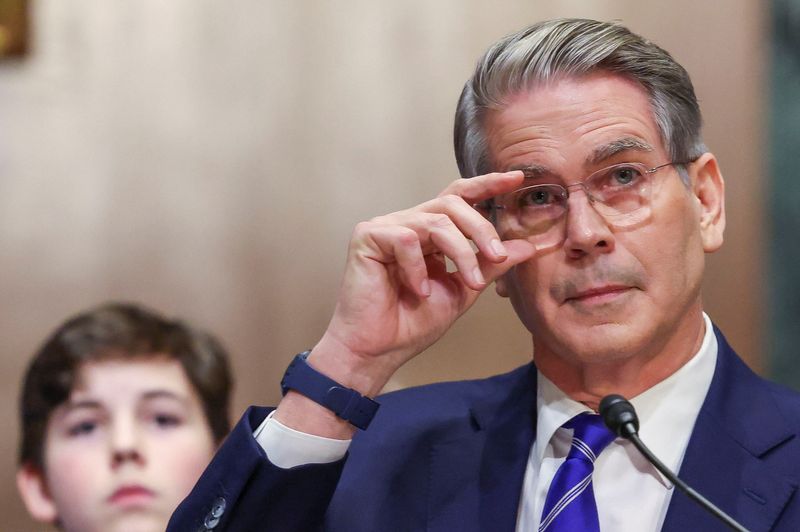Wall St futures flat amid US-China trade jitters; bank earnings in focus
Investing.com-- Major U.S. trading partners are still negotiating in good faith with the Donald Trump administration, Treasury Secretary Scott Bessent said on Thursday, despite increased legal wrangling over the president’s tariff plans.
But Bessent said that talks with China had stalled.
Speaking to Fox News, Bessent said that Trump held the right to “set the trade agenda for the U.S.,” and that the administration was still targeting fair trade and striking the “best deals for the American people.”
Bessent noted that a recent ruling by a federal trade court, which attempted to block Trump’s tariffs, had caused no change in ongoing trade talks.
Trump had appealed the ruling almost immediately on Thursday, with the appeals court allowing his tariff agenda remain in place while the appeal was heard.
“They are coming to us in good faith, trying to complete the deals before the 90-day pause ends. We’ve seen no change in their attitude in the last 24 hours,” Bessent told Fox News, referring to major U.S. trading partners.
Bessent said that he was slated to hold high-level talks with Japan on Friday, and that there were a “couple very large” trade deals that were close. He also noted that negotiations with the European Union were progressing after Trump last week threatened to impose 50% tariffs against the bloc.
US-China talks stalled, Bessent says
Bessent said that talks between Washington and Beijing had stalled, although he expected more dialogue with China in the coming weeks.
“(Talks with China) are a bit stalled, I believe that we will be having more talks with them in the next few weeks,” Bessent said.
The Treasury secretary also raised the possibility of a direct call between Trump and Chinese President Xi Jinping in the coming weeks.
“I am confident that the Chinese will come to the table when president Trump makes his promises known.”
The U.S. and China had earlier in May agreed to temporarily slash their steep tariffs on each other. But relations between the two had somewhat soured as China repeatedly objected to stricter U.S. controls on China’s chip industry.
